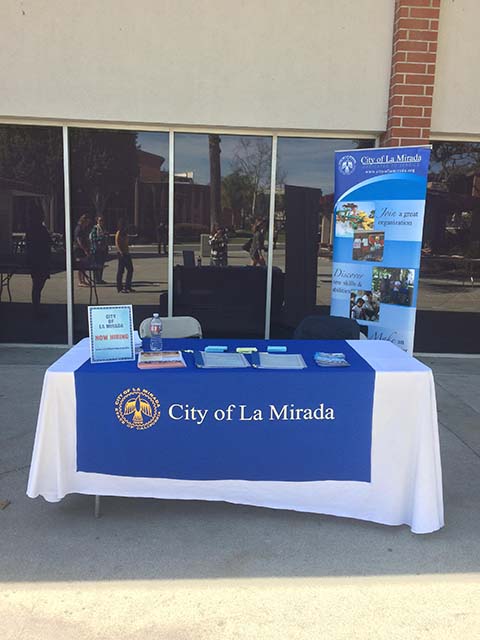It is no secret millennials tend to steer clear of the voting booth like the plague. However, Christian men and women have done so for decades, but driven by entirely different motivations.
Fear of tension
The La Mirada local election for city council occurs on March 7, and the seats will likely be filled and emptied again without students’ awareness to changes made in the community. Biola students as a whole avoid the topic of politics for fear of tension and opposition — but they still represent a large majority of the demographic of La Mirada as a city.
Scott Waller, political science chair, describes students’ newfound awareness of national politics due to the drama of the 2016 presidential election as a blessing to the teaching arena. Bringing politics and voting on to students’ radar is a tricky business, and, in Waller’s opinion, the national election did the trick.
“The level of connection that we can have now with the average student with Trump’s presidency is much greater. Because he has put American politics on the radar,” Waller said. “It gives us a hook that we normally don’t have.”
Lack of local interest
Darren Guerra, professor of political science, confirms the same theory regarding the gap between national and local politics. He takes it a step further, though, and explains in greater depth the level of ignorance students sometimes elicit because local elections simply do not come up in their day-to-day lives.
“You turn on the evening news, and they’re never talking about Sacramento, because they’re talking about Washington D.C. We’re saturated with national politics so we don’t care much about state or local,” Guerra said. “But state and local still have the lion’s share [of power].”
On the same point, several different facets of life beyond Biola are impacted heavily by the decisions of the La Mirada city council. From road construction to night lighting, council men and women decide how the standard of living will be for people living out of Biola’s borders.
“Parking tickets, city ordinances, city programs — that all happens at the local level. And I think that’s an area that students overlook because it’s not as flashy as politics that go on at higher levels,” said Jason Muehlhoff, political science alumnus and academic advisor.
Even as a political science major, local politics did not appear on Muehlhoff’s responsibility list until late in his undergraduate education. He understands how the average student can be wary of it, but many are simply unaware of its existence or importance.
“It’s not that they choose not to engage, it’s just that it doesn’t come across their radar,” Muehlhoff said. “In today’s climate, there can be an aversion to politics. I would say that’s one of the big reasons. I think we’ve grown up, our culture has gotten used to not really focusing on those type of things.”
Avoidance or acceptance
There are often two ways in which Christian men and women respond to the political sphere: avoidance or hyper-acceptance. Waller falls on an aspect of acceptance found in responsibility, Guerra stresses the civic duty of participating in government voting and Muehlhoff expresses subtlety in how one can address a polarizing conversation. While Christianity may appear other-worldly, the world’s governments should be cared for and interacted with, according to Guerra.
“I think the incarnation matters. Christ came to earth in bodily form, not because the earth doesn’t matter, but because it does for the time we’re here,” Guerra said.
All three agree on the point of the necessity to vote due today’s polarized climate — though students should vote every other year regardless. The purpose of an elected official is to serve the people who voted them in, and that sphere needs Christians, according to Waller. He also makes an important note: elections and governments should not be over-glorified, either.
“To be a person of principle and character — and not be a radical partisan — would be a huge thing,” Waller said. “If people’s real lives are impacted by that, why wouldn’t we want to invest ourselves in that? Always in an idea, though: politics is not ultimate.”







